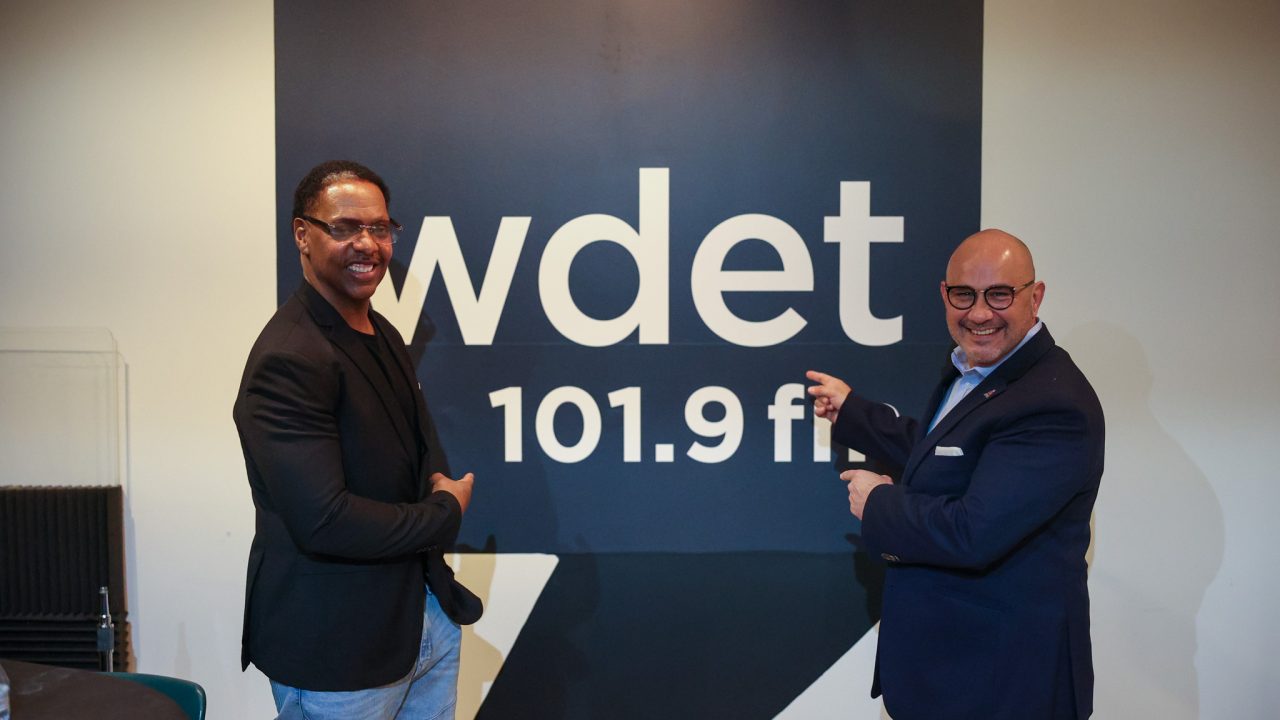Does our criminal justice system allow for true redemption?
The recent Michigan Supreme Court controversy around remarks made by Justice Richard Bernstein raises questions over the purpose of punishment and whether redemption is possible in the U.S.

Ronnie Waters (left) and Rick Speck at WDET on Jan 11, 2023
Recently, Michigan Supreme Court Justice Richard Bernstein came under fire after he criticized his colleague, Justice Kyra Harris Bolden, for hiring a clerk who had been incarcerated.
That clerk, Pete Martel, had served 14 years after robbing a Flint-area store and shooting at police officers. Once Bernstein made his criticism public, Martel resigned from the position.
Bernstein has since apologized for his comments but his initial statements raised questions. Namely, why do Americans have such a hard time accepting someone back into their communities after they supposedly paid their debt to society?
We make it hard for returning citizens to get a job, acquire housing, and even live with their family members or friends. Their lives remain under heavy surveillance for quite some time. Why?
“I had a support system that most returning citizens don’t have and I was able to have a leg up because of my support system. And with all these caring and loving people in my life, it was still a struggle,” — Ronnie Waters, community engagement specialist
Listen: What redemption looks like for two returning citizens.
Guests
Zachary Hoskins is an associate professor of philosophy at the University of Nottingham in England. He has written a lot about what it means to punish. He says there’s a tension between punishments that allow for effective deterrence and those that can help rehabilitate.
“I think it’s important to keep in mind that these aims that people might give (to punish) don’t always fit together really comfortably,” says Hoskins.
Ronnie Waters is a community engagement specialist with Safe & Just Michigan, a nonprofit advocating for criminal justice reforms. He says, being locked up for 40 years, it was really hard to adapt and live in the free world upon returning home.
“I had a support system that most returning citizens don’t have and I was able to have a leg up because of my support system. And with all these caring and loving people in my life, it was still a struggle,” says Waters.
Rick Speck is the Leadership Programs Coordinator for JustLeadershipUSA, an organization amplifying the power of people directly impacted by incarceration. He is also a Community Engagement Specialist with Safe & Just Michigan.
Speck says he was traumatized and sexually assaulted when he was younger.
“When I healed from those harms, I was able to look at life differently, I was able to experience life differently. And so, when I came home, I wanted to do better,” says Speck.
Trusted, accurate, up-to-date.
WDET strives to make our journalism accessible to everyone. As a public media institution, we maintain our journalistic integrity through independent support from readers like you. If you value WDET as your source of news, music and conversation, please make a gift today.

